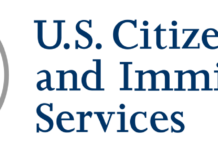In the world of law and justice, some statutes stand out for their sheer power and impact. The Racketeer Influenced and Corrupt Organization Act, commonly known as RICO, is one such law. The law was enacted in 1970 as a part of the Organized Crime Control Act, RICO, to combat organized crime. Ever since, RICO has become a potent tool for prosecuting a wide range of criminal enterprises.
The RICO Act originated because of the rise of organized crime in the United States (US) during the mid-20th century. The Mafia, also known as La Cosa Nostra, had a stranglehold on numerous sectors of the American economy, especially the labor unions, gambling, and the drug trade. As a result, traditional law enforcement methods were struggling to tackle the complex web of criminal activity. In response, RICO was drafted in an effort to provide a more comprehensive approach to dismantling these criminal enterprises.
RICO focuses on a pattern of “racketeering activity.” Racketeering encompasses a wide range of criminal acts, for example, bribery, extortion, money laundering, gambling, drug trafficking, and murder. Therefore, to bring a RICO case, the United States government must establish that a defendant engaged in at least two acts of racketeering activity within a decade (ten-year period).
RICO allows the grounds for the prosecution of both individuals and organizations. According to the statute, an “enterprise” is defined as any individual, partnership, corporation, association, or other legal entity. The definition is instrumental in going after both street-level gangs (common thugs) and white-collar criminal organizations.
A key element of a lawyer in a RICO case is proving a “pattern” of racketeering activity. Ergo, the defendant must be engaged in a series of related criminal acts that constitute a distinct pattern. It is important to note that these acts must have a common purpose, like advancing a criminal enterprise.
The Racketeer Influenced and Corrupt Organization (RICO) results in both criminal and civil penalties. As a result, a successful RICO prosecution can result in lengthy prison sentences, fines, and the forfeiture of assets gained through the criminal enterprise. In most civil cases, individuals who have been harmed by RICO violations can seek possible treble damages, which can be financially devastating for the defendants.
The Racketeer Influenced and Corrupt Organization Act, or RICO, stands as a testament to the United States government’s commitment to combating organized crime and corruption in general. The statute has evolved into a multifaceted legal tool used to bring both criminal and civil cases against numerous individuals and criminal organizations. Although RICO has been successful in disrupting criminal enterprises, it has sparked debates on its potential for abuse and overreach. As the legal landscape continues to evolve, RICO remains a dynamic and influential statute, shaping the pursuit of justice in the United States and the world at large.









